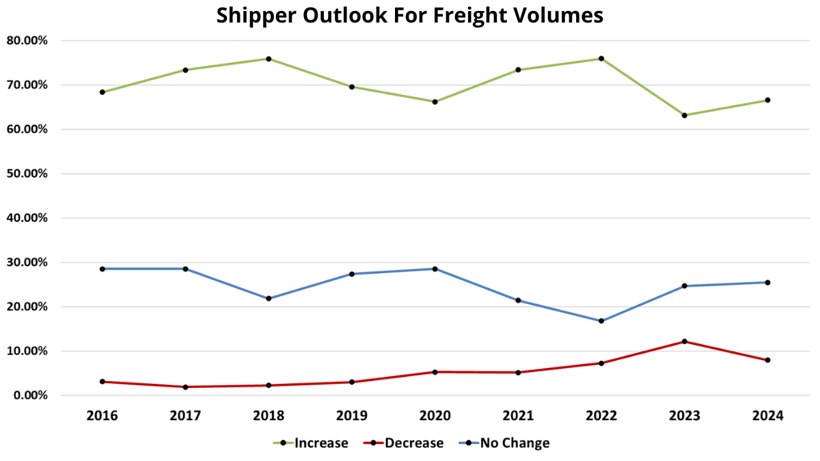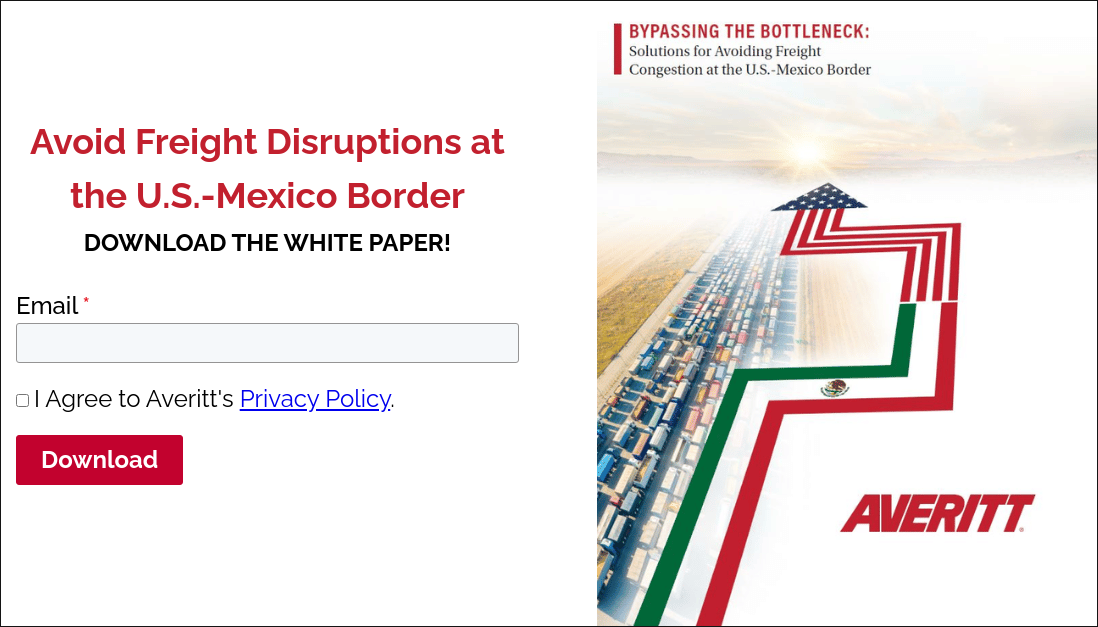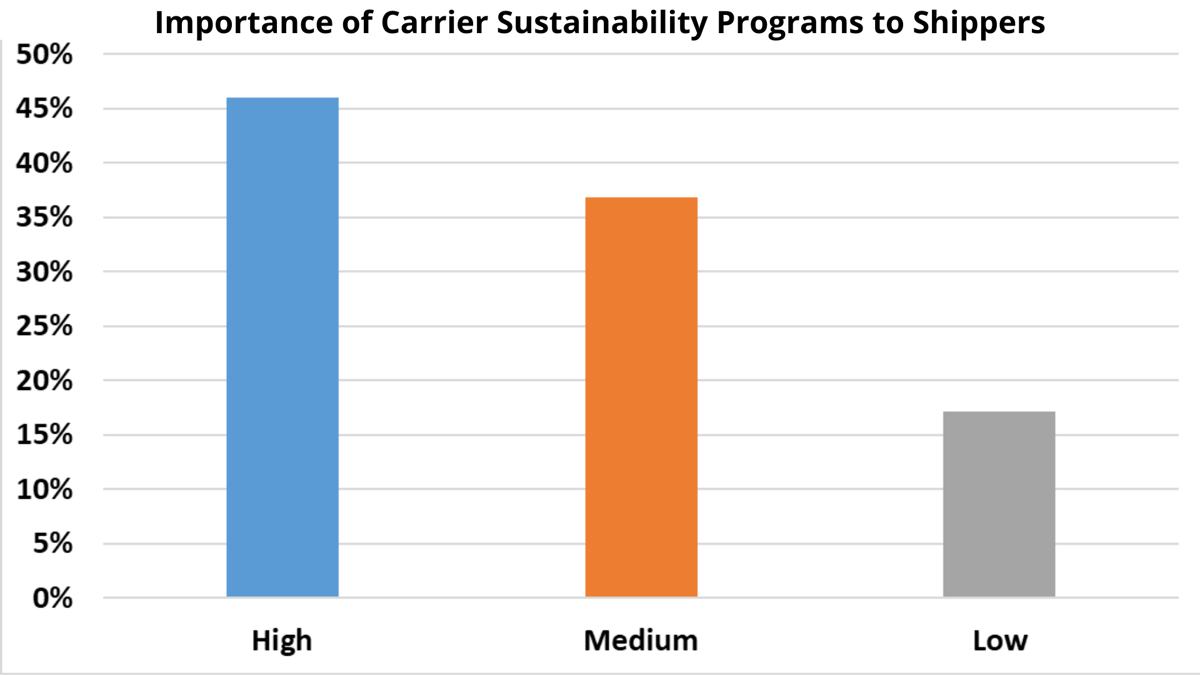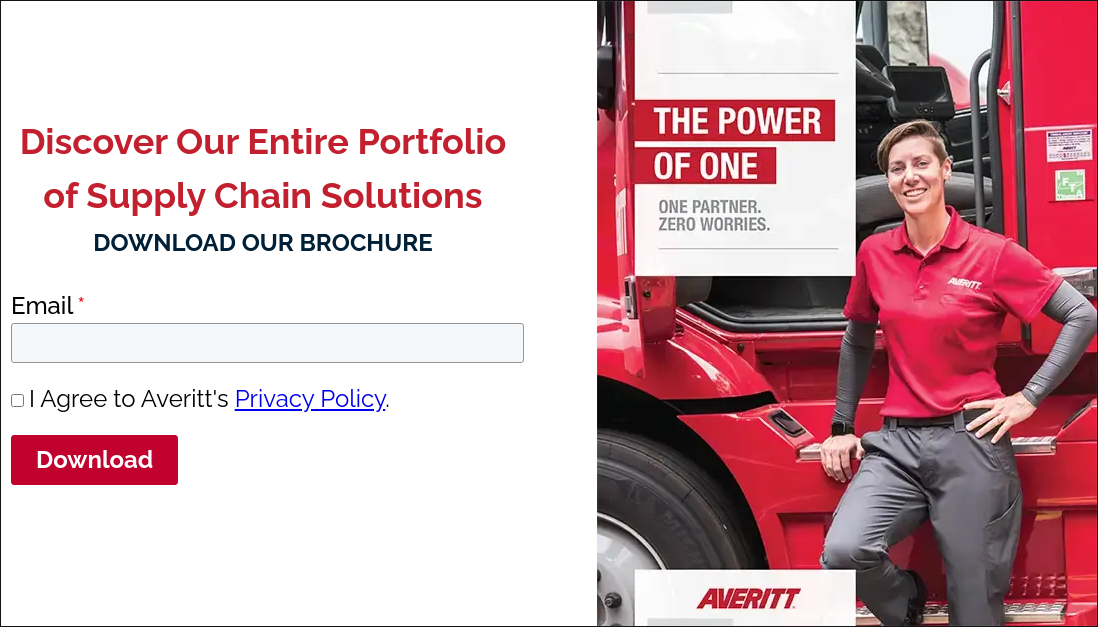As we step into 2024, the landscape of supply chain and logistics continues to evolve, driven by dynamic market trends and technological advancements. In the sections below, we explore four critical trends of transportation and supply chain management that will be increasingly important areas to understand and strategize around in the months and years ahead.
1.) General Freight Outlook
In 2023, the transportation industry saw several major players close their doors for good, including Yellow Corporation (one of the largest carriers) and Convoy (a tech-based freight brokerage firm). The closures came amid a year of abundant freight capacity matched by lower demand, making it difficult for many companies to meet their financial obligations.
2024, however, could see the beginnings of an upswing in freight market conditions. As post-COVID inventories gradually deplete, we may see an uptick in import and international forwarding activity. These movements will then feed downstream into domestic freight transportation areas, including drayage, less-than-truckload, full truckload, and final mile delivery.
In general, there may not be a drastic surge in shipping volumes, but the numbers are looking promising from an economic standpoint in terms of traditional and sustainable growth.
In our 9th annual State of the North American Supply Chain Survey, we asked over 1,400 shippers in late 2023 what their expectations were for shipping volumes in 2024. 67% of our respondents said they anticipate moving more freight in 2024 than 2023. This marked a 4-percentage-point gain over the previous year – a positive sign for shippers and carriers alike.

2.) E-Commerce Sales & Shipping Needs
According to Statista, e-commerce revenue in the U.S. will surpass the $1 Trillion threshold this year -- more than double the revenue in 2019 ($461 Billion). Cyber Monday 2023, alone, grew 9.6% year-over-year to $12.4 billion in the U.S., according to Adobe Analytics.
The growth in online shopping, for both consumers and businesses, is driven by convenience, the ability to compare brands, and the fact that purchases can be delivered to a buyer without them having to necessarily visit a physical location.
As e-commerce sales continue to grow, more businesses (B2B and B2C) will need to continue to focus their efforts on driving efficiency within their final mile logistics strategy. Final mile delivery services tend to be synonymous with residential deliveries.
These are generally shipments that cannot be moved via traditional parcel services. Large and oversized products, such as furniture, office equipment, and medical devices, fall into the bucket of final mile deliveries that more consumers and businesses are seeking solutions for.
To meet the demand for residential large and bulky deliveries, shippers should work closely with their providers to ensure they have access to the capacity and more importantly -- the solutions and experience of ease that their customers want.
At Averitt, we offer unparalleled final mile delivery services that keeps your online customers returning again and again. Watch the video below to learn more.
3.) Continued Growth of Nearshoring Manufacturing to North America
Fueled by the passage of the United States-Mexico-Canada Trade Agreement and geopolitical tensions in recent years, nearshoring and reshoring of manufacturing and various supply chain operations is on the rise.
With its proximity to the U.S. and lower labor costs in comparison to traditional international manufacturing hubs, Mexico will increasingly become a critical point for challenges and opportunities within many supply chains. As more companies seek to bring areas of operations home, particularly to Northern Mexico, supply chain and logistics professionals will need to focus more efforts on establishing a strong strategy for cross-border freight transportation.
As it stands, traditional freight lanes between the U.S. and Mexico are already struggling with a wide range of capacity challenges, ranging from infrastructural inadequacies to equipment shortages. To overcome these issues, businesses should begin building strong partnerships with their transportation service providers and identify ways to diversify their logistics strategies.

4.) Sustainability Is More Important Than Ever
When it comes to sustainability, more businesses are focusing efforts to reduce the impact of their supply chains on the environment. Driven by increasing regulations, incentives, and societal demand, shippers everywhere are looking to their carriers to help them achieve their sustainable goals.
When we asked shippers in our recent survey about how important a carrier's sustainability program is to their decision-making process, only 17% said it was of low importance.

With approximately 83% stating that sustainability is of high or medium importance, it's obvious that more businesses and logistics professionals are under pressure to make progress. This focus is expected to continue to grow in the years to come, and will become an essential aspect of the RFP process for many companies.
At Averitt, sustainability is an ongoing journey that expands throughout our operations, including our fleets, facilities, and practices of our associates. We are committed to reducing the impact of our operations on the environment -- and ultimately the impact of our customers' supply chains.

Start Building A Strong Partnership
As you navigate the year ahead, it's clear that the landscape is rapidly evolving, presenting both challenges and opportunities. At Averitt, we are not just sideline service providers but active partners dedicated to seeing our customers achieve and exceed their goals.
Our comprehensive suite of services, from final mile delivery to Mexico cross-border transportation, is designed to meet the diverse needs of today's shippers. We understand the importance of sustainability, the growing demands of e-commerce delivery and logistics, and the strategic shift towards nearshoring.
By partnering with us, you gain more than a service provider; you gain a partner who is committed to innovation, efficiency, and sustainability. Watch the video below to learn more about our "Power of One" approach to enabling your success and contact us today to speak with our team.








